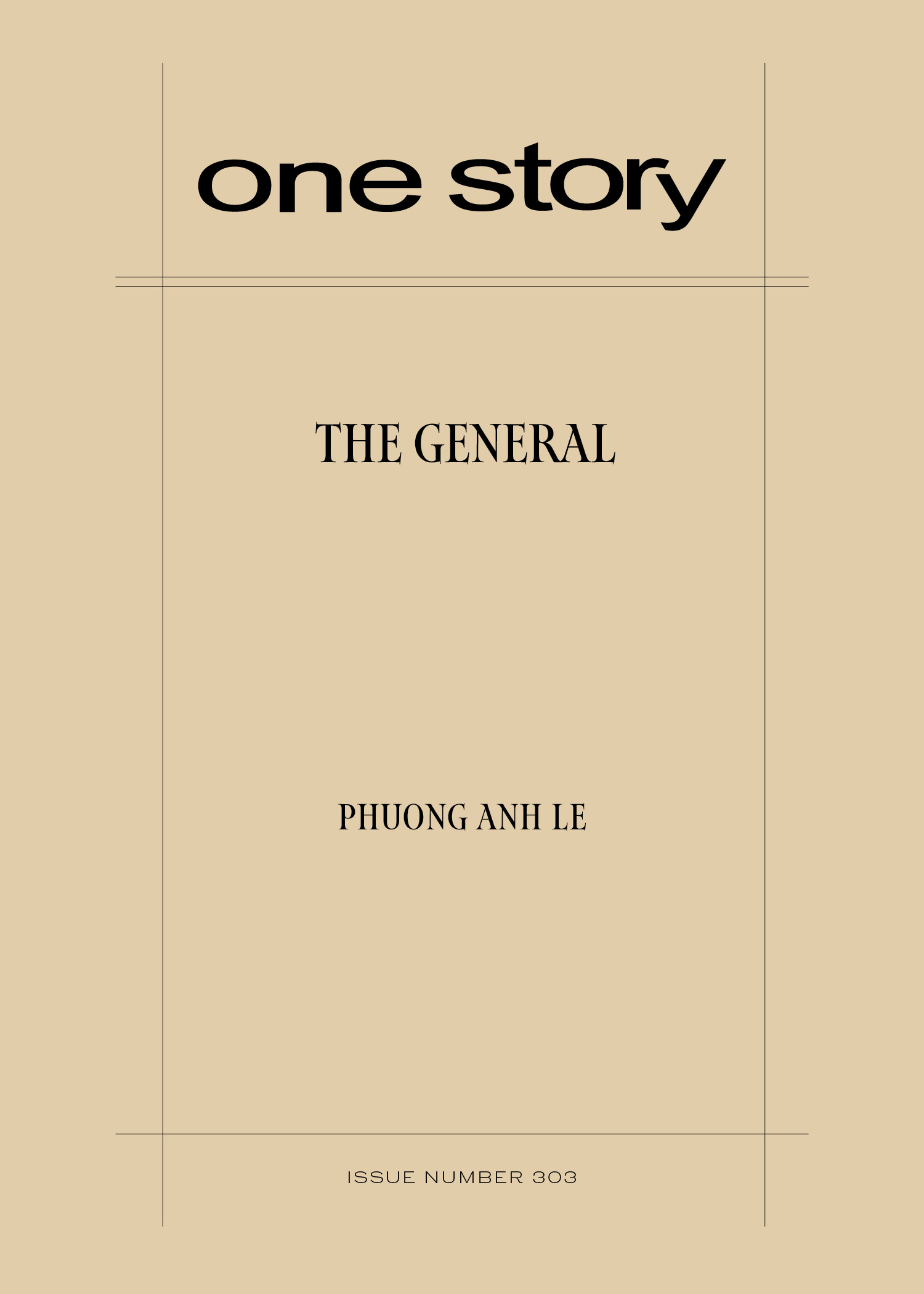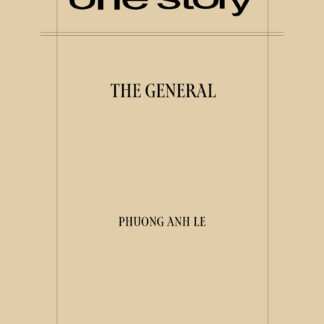
The General
$2.50
135 in stock
Excerpt
He had woken up at seven, walked the two kilometers from his villa on Phan Đình Phùng Street to West Lake to do his daily t’ai chi exercises, then around ten, after breakfast, sat down to work on his memoir for several hours until it was time for lunch and a nap, which would normally be followed by a late afternoon of TV and relaxation. But not long after he had settled comfortably on the sofa, a bottle of Hennessy open on the coffee table, the doorbell rang. He ignored it. His rule for the past two years, since his wife passed away, was not to welcome visitors on weekends. He did not think it could be his second son and his family. They normally dropped by on Saturday afternoons, though not as habitually in the six months since he had retired. Mrs. Lan would have answered the door but she was off for the weekend. He felt tired and groggy, as he always did on a quiet Sunday like this.
“Who’s that?” he said through the intercom when the doorbell rang for the fifth time.
A woman’s voice came over the speaker: “Hello, Uncle. I’m the daughter of Mr. Lê Huy Hoàng, one of your former soldiers.”
Phuong Anh Le
Born and raised in Hanoi, Phuong Anh Le came to the United States at the age of twenty-one to work as a translator for the Robert McNamara Oral History Project on the Vietnam War. She received her MFA in fiction from Warren Wilson College, her MPA from Princeton University, and her JD from Columbia Law School. A former litigator in New York, she currently lives with her husband and daughter in the Boston area. Her fiction has also appeared in Southern Indiana Review.
Patrick Ryan on “The General”
Our new issue opens on a retired Vietnamese General in his comfortable villa, about to sit down for an afternoon of television and cognac when his doorbell rings. The visitor is a young woman who says her father was one of the General’s soldiers in the war. She has a favor to ask. The General scoffs but invites the young woman in, and he sees that she’s brought with her a hand-sewn notebook. Her father’s poems, she explains—written during the war, about his experiences. It was his dying with that she publish the book of poems, she says. Would the General, who used to be in charge of the Ministry of Culture, help her accomplish this?
The General is amused, even charmed, but has no real ability or desire to help the young woman with her quest. But her name, Hao, coincidentally touches on one of his most guarded secrets, and she has a secret of her own that she’s carrying around. As rain batters the leaves outside the windows, these two unlikely companions open up to each other in ways neither of them expect. But are there ulterior motives at work? A retired General always has to wonder…
When I first read Phuong Anh Le’s “The General,” I was most impressed by its calm, steady tone. The General is a cautious, reserved person, and, it seems, so is his unexpected visitor. The tone of the story—from its play-like setting to its sensory detail, its pacing, and the way the characters interact—is all in keeping with this sense of cautious reservation. The result is a story that feels organically of itself: character, substance, and atmosphere all resulting from the same creative spark. One Story invites you to take a seat on the General’s sofa, listen to the rain, taste the wine, and witness a meeting that will crack the exteriors of two strong-willed characters and—just maybe—open the door to new possibility.
Q&A by Patrick Ryan
- PR: Where did you get the idea for this story?
- PL: For many years, I had wanted to write a story about a Vietnamese general. In Vietnam, generals are revered as national heroes. While doing research for my novel about a Vietnamese poet who gave up his love and art for a cause he later regretted, I stumbled upon fascinating intimate histories of some of the leaders of the Vietnam War. I was struck by the complicated, very human stories of their personal lives, the extraordinary sacrifices they made in the name of freedom and reunification. As someone raised in impoverished postwar Vietnam, perhaps I was also drawn to this story as a way to understand the meaning of the conflict that deeply shaped my childhood and cost so many Vietnamese and American lives.
- PR: And how long did it take you to finish “The General” before you started submitting it to magazines?
- PL: About six months. Once I had the initial inspiration, it took me a couple of weeks to finish the first draft, but I had to go through several rounds of revisions over the course of six months before I had a draft ready to be submitted to journals. Even then, I worked with you on a couple rounds of edits to reach the final version.
- PR: One of my favorite things about the story is the way its tone fits the General’s demeanor: calm, quiet, clever, wry, reserved. It’s as if the tone is a natural extension of that character. Were you conscious of the tone as you wrote the story, or did it come about organically (or instinctually)?
- PL: It came out quite organically but perhaps it helped that I had been deeply immersed for several years in the first-person voice of the older male narrator of my novel.
- PR: Is that character like the General?
- PL: In some ways, they are similar since they both chose the revolution over love and personal happiness. However, they are also very different. My novel is centered around two major story strands: the narrator’s friendship and rivalry with another poet who chose a different path, and his complicated relationship with a French woman. The narrator is a highly talented artist, who came from a sophisticated intellectual background, but is, by nature, not as decisive or strong-minded as the General.
- PR: Were there any surprises for you in the writing “The General”?
- PL: Yes! When I started working on the story, I just had in my mind this idea of a general revealing a huge personal secret to a stranger during their unexpected encounter. But as the story progressed I was surprised to find myself writing about the war, the predicament men like the General found themselves in, how they were caught in the sweeping forces of history and the politics of the time and their own ambitions, what they were asked to give up to win the war and what the victory meant for them and the country.
- PR: Did either one of your two main characters change significantly from your original conception of them over the course of writing and revising the story?
- PL: The young woman stayed more or less the same, but the General evolved and crystalized during revisions. At one point, I was heading in a slightly different direction with his character, but in the revision process, I was able to bring into sharper focus the deeper longing that underlies the story and to find an ending that feels right for him.
- PR: What are you working on now?
- PL: I’m working on a story collection that explores the complex, multi-layered worlds of contemporary Vietnam and its interactions with America, tentatively titled Marrying an American. I’m also revising a draft of a novel The Poet of Our Time, a hundred pages of which I had submitted as my graduate thesis at Warren Wilson a few years ago.
- PR: What’s the best piece of writing advice you’ve ever received?
- PL: Write regularly, and in order to do that you have to allow yourself to write badly. This is one of the writing tips Jennifer Egan gives to new writers in an interview with the Los Angeles Review of Books. I found her advice extremely helpful and liberating. For some time, I didn’t write at all because I thought everything I put down had to be perfect. I didn’t understand then that writing is a process, and that the act of creation is as mysterious as falling in love. I think Graham Greene might have said that.
